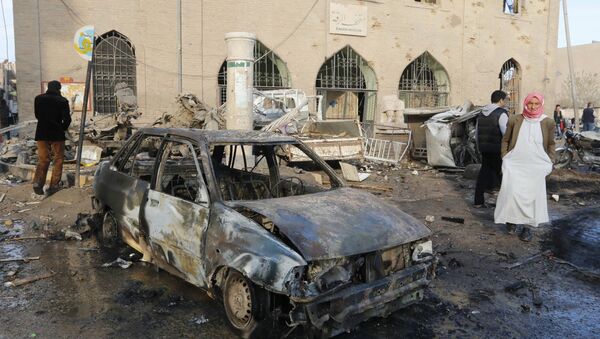SOCHI (Sputnik) — On Tuesday, US Secretary of Defense Ashton Carter said the US-led coalition had begun preparation for the operation to free the Syrian city of Raqqa from Daesh and expected it to overlap with the offensive to retake Iraq's Mosul.
"Let's suppose Mosul is cleared from Daesh, and the fight moves to Raqqa. It will be the last headquarters that will fall in the hands of the coalition. When they are expelled from Raqqa, Daesh will no longer have any strong headquarters. That is why, in Raqqa, it will be a 'life or death' fight. It will be bloody, can take long time, and we do not know yet how much it will cost in human lives," Yakis said.
The operation to free Mosul was specifically designed in such a way to make Daesh fighters move to Raqqa, the Turkish 2002-2003 foreign minister explained.
"The Americans designed the operational plan in such a manner that Mosul is attacked from north, east and south, and the west of Mosul is left for Daesh to escape. When they escape in that direction, most probably they will go to Raqqa or other places in Syria. This is the military plan of the US. Maybe it's a sound plan, because you need to clear first one of the weakest points to go to another place further," Yakis said.
He said, however, that it remained unknown how long Mosul fighting would continue and whether Daesh militants would withdraw from Mosul immediately to save as many fighters as possible.
"They may also put resistance, then it would be difficult to fight house-to-house," he said.
Washington's Need to Pick Between Kurds, Turks to Harm Mosul, Raqqa Operations
The dilemma of choosing between the support of the Kurds or the Turks will decrease the efficiency of the US-led operation to liberate Iraq's Mosul and Syria's Raqqa from terrorists, Yakis told Sputnik.
"America wanted to free Mosul by cooperating with PYD [Kurdish Democratic Union Party] and the Kurdish militants, and YPG [People's Protection Units], which is the military brand of PYD. But resistance in Raqqa may be bigger than what the PYD and YPG could overcome," Yakis said.
He said that after that the United States turned to Turkey for cooperation, with Ankara refusing to send soldiers to Raqqa due to the presence of the PYD and YPG.
"Turkey will have to go there in case the Kurds are not there. This is a dilemma for the United States, because the Kurds for the United States are the most reliable fighters, best allies. Turkey is a NATO ally which has an experience of cooperating with the armies of other countries within NATO… For the United States, to lose either the Kurds or the Turks is a very difficult dilemma. This will decrease the efficiency of the operations against terrorists," Yakis said.
Last week, US Joint Chiefs of Staff Chairman Gen. Joseph Dunford said the Pentagon expected to see success in Mosul and Raqqa in the coming months.



